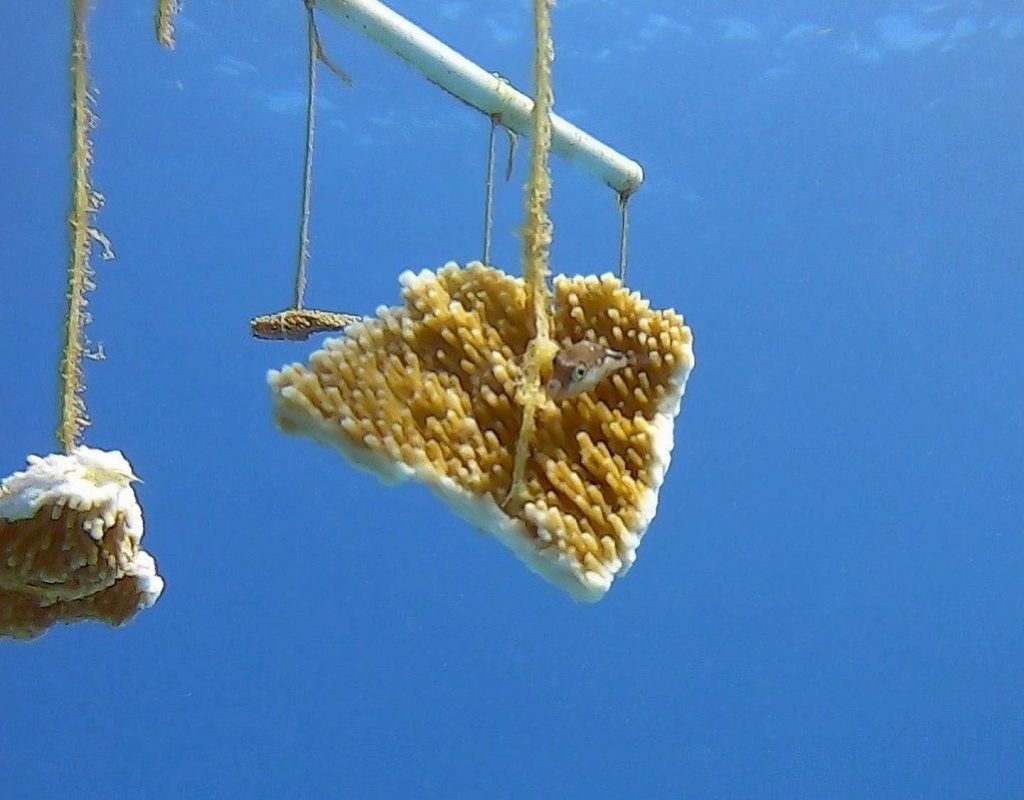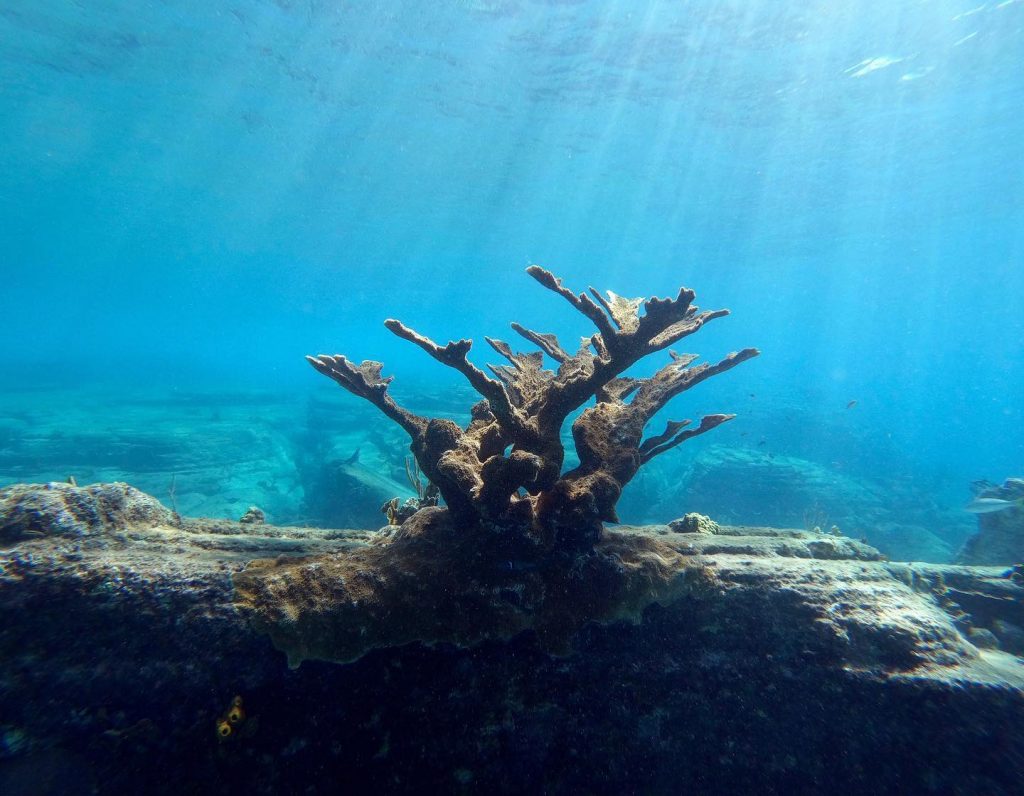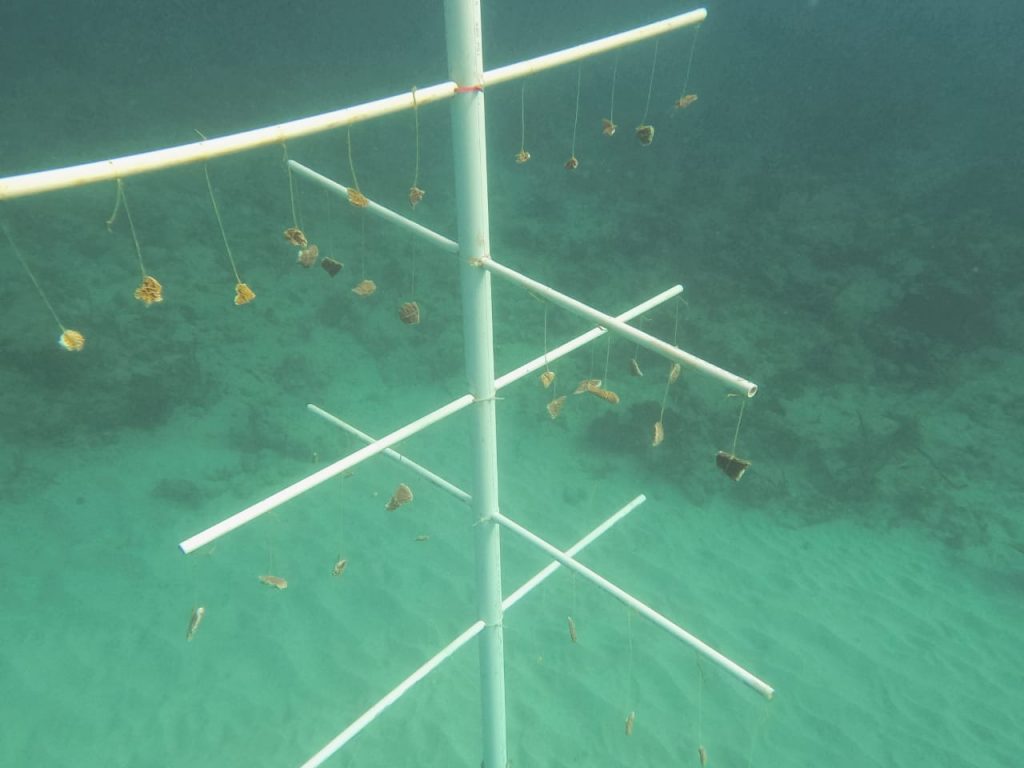
by Gemma Handy
It might look like the world’s most uninspiring Christmas tree – but one sparse structure adorned with tiny coral fragments could play a starring role in protecting Antigua’s prized south coast reef for generations to come.
Environmentalists recently set up the very first coral nursery ever seen in Nelson’s Dockyard National Park.

The pioneering project aims to grow crucial reef-building corals – such as critically endangered elkhorn – until they are large enough to be transplanted onto the reef to boost its diversity and resilience.
If successful, the venture will be expanded into other local marine parks, said marine ecologist Ruleo Camacho who is spearheading the initiative.

Similar nurseries have helped replenish wild populations of corals in other parts of the world, such as the Florida Keys where species have declined due to bleaching events or a drastic drop in temperature in winter.
Fast-growing acroporas – a family of small stony corals – have been chosen for the project set up at the popular Pillars of Hercules dive site just outside English Harbour.
“From surveys conducted in 2019 and additional monitoring, we identified some areas that are in need of some help,” Camacho told Observer.
“So we are going to grow these corals and propagate them on these nursery trees. The process is called coral gardening, and once you get enough of them you can plant them onto the actual reef system.”
The corals being used are those which provide critical habitat for marine life and are relatively easy to manage.

They will need up to three years to grow before they are big enough to be planted onto the reef and able to withstand environmental pressures.
“These corals attract all sorts of fish,” Camacho continued. “And they provide shelter and food for commercially important species like grouper, snapper and lobster, so they’re very much an important part of the reef ecosystem.”
Local dive shops have been enlisted to help with the nursery’s maintenance.
Leigh Cunningham, of DiveCarib, told Observer the English Harbour-based business was delighted to assist.

“We are at the site quite frequently so we give it a little inspection whenever we are there and clean the algae off,” Cunningham explained.
“We do as much as we can to protect the environment. If we want to maintain our reef and have it here for people to benefit from and enjoy in years to come, we need to keep it in as good condition as possible,” he added.
Meanwhile, while divers and environmentalists say the offshore sites of the national park are currently looking healthy, they are keenly aware of the wealth of challenges facing it.
There’s a “combination of threats”, Camacho said. “Everything from human induced climate change to poor fishing practices and poor overall management of the marine ecosystem.”
Increased frequency and intensity of storms also pose a major risk to reefs worldwide.
Camacho added, “What we’re trying to do is ensure that the factors that promote a healthy reef ecosystem are as strong as possible, so when we do get stronger storms our reefs are able to recover as best as possible.”
